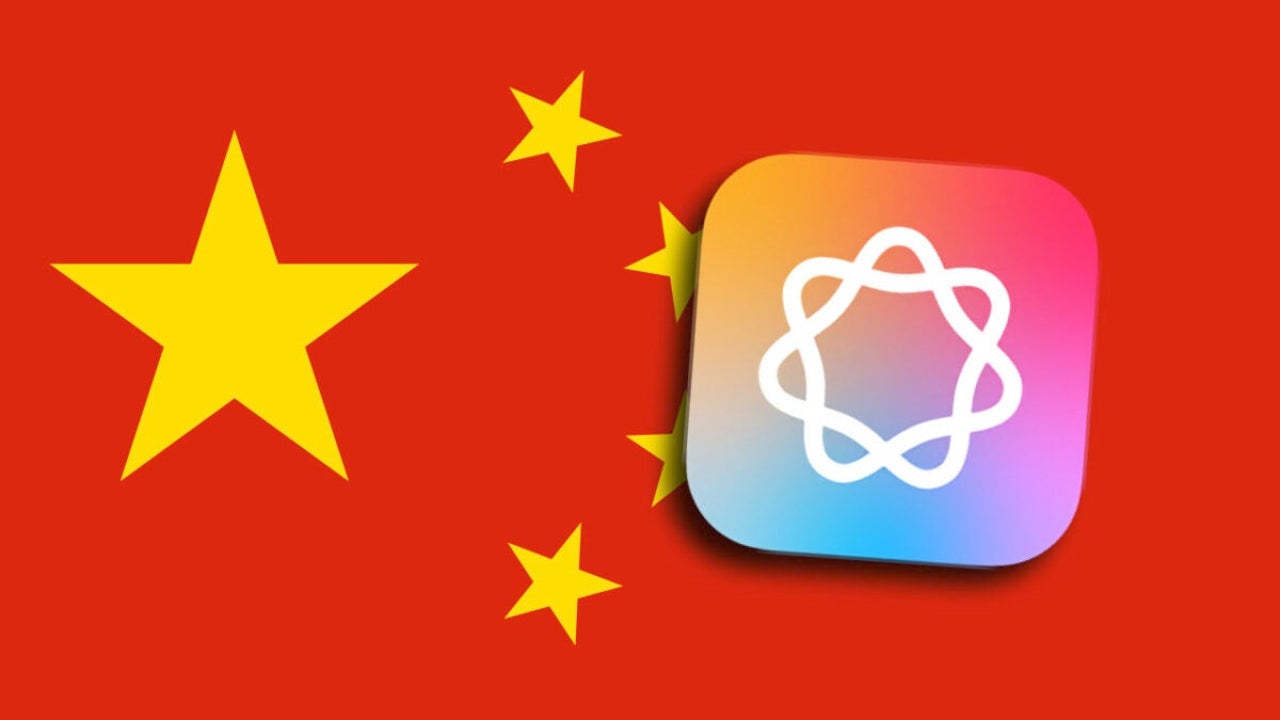Apple Intelligence faces challenges in China: Baidu wants to scan user data
The essential pillar of Apple Intelligence does not convince China

- December 5, 2024
- Updated: December 6, 2024 at 10:42 AM
While most of the world is already enjoying Apple Intelligence, there are two regions where Apple’s artificial intelligence is still not available. One is the European Union, which, due to its regulations, has delayed its arrival, although we already have an official launch date in Europe. The other region is China, where Apple Intelligence faces challenges. According to The Information, the differences between Apple and Baidu, its local technology partner, go beyond technical issues, also affecting fundamental principles regarding privacy.

Subscribe to the Softonic newsletter and get the latest in tech, gaming, entertainment and deals right in your inbox.
Subscribe (it's FREE) ►Baidu and Apple: A complicated collaboration from the start
Since China requires foreign companies to partner with a local entity to deploy artificial intelligence in China, Apple’s goal is clear: adapt Baidu’s capabilities to the quality and user experience standards of iOS. To achieve this, engineers from both companies are working to integrate the ERNIE 4.0 language model, presented by Baidu in October 2023. According to The Information, the model is not performing as expected, as it struggles to understand requests and respond adequately to common scenarios posed by users.
Beyond the technical issues, which are not minor, the biggest challenge lies in the way user data is handled. While Apple advocates for privacy and local processing of information whenever possible, Baidu wants to retain the data generated by users during requests to its artificial intelligence.
A difficult but essential market
China represents the third most important market for Apple, and maintaining the competitiveness of iPhones there is of great importance. Apple has made the decision to collaborate with Baidu to ensure that its technology meets the requirements of the Chinese market. A move that makes sense given the difficulty of approving foreign artificial intelligence models in China, but it comes with both economic and strategic costs.
The partnership with Baidu includes the use of the ERNIE 4.0 model, which Apple must pay for and also specifically adapt for the iPhone, implying an additional cost in development. The need to comply with Apple’s strict privacy standards adds an extra layer of complexity. As reported in The Information, Apple is not willing to compromise its privacy defense, even if it means delays in the implementation of Apple Intelligence in the country.
Although Apple has made concessions in other aspects to operate in the Chinese market—such as storing data on local servers managed by Chinese companies—the idea of allowing Baidu to freely access user data seems to be a line the company is not willing to cross.
Time will tell how this situation is resolved, but what is clear is that Apple will continue to defend its approach to privacy, even in a market as delicate as China. We will see, with this, when Apple Intelligence will be available in the country.
Meanwhile, and while we await its arrival in Europe, with Apple Intelligence, we are seeing how artificial intelligence can be integrated uniquely and naturally into our daily lives. An approach that, thanks to privacy, allows us to enjoy the power of AI in the applications we already know. An invisible AI that, however, will increasingly be present in what we do and how we do it.
Architect | Founder of hanaringo.com | Apple Technologies Trainer | Writer at Softonic and iDoo_tech, formerly at Applesfera
Latest from David Bernal Raspall
- Eight simulation games that look spectacular on the iPhone or iPad
- iCloud passwords come to Firefox: Apple launches an official extension
- Tim Cook talks about Apple's Intelligence plans, OpenAI, Vision Pro sales, and much more in a new interview
- The most successful psychological thriller on Apple TV+ gives a first look at its second season
You may also like

Intel presents the graphics cards that will compete with Nvidia and AMD in the entry-level range: “A good GPU for only $249”
Read more

Eight simulation games that look spectacular on the iPhone or iPad
Read more

League of Legends joins the card games with Project K
Read more

The best version of Blasphemous has just been released, and it’s for smartphones
Read more

Marvel Rivals becomes a real hit on Steam and breaks records
Read more

The 30th anniversary of PlayStation comes loaded with discounts and offers
Read more